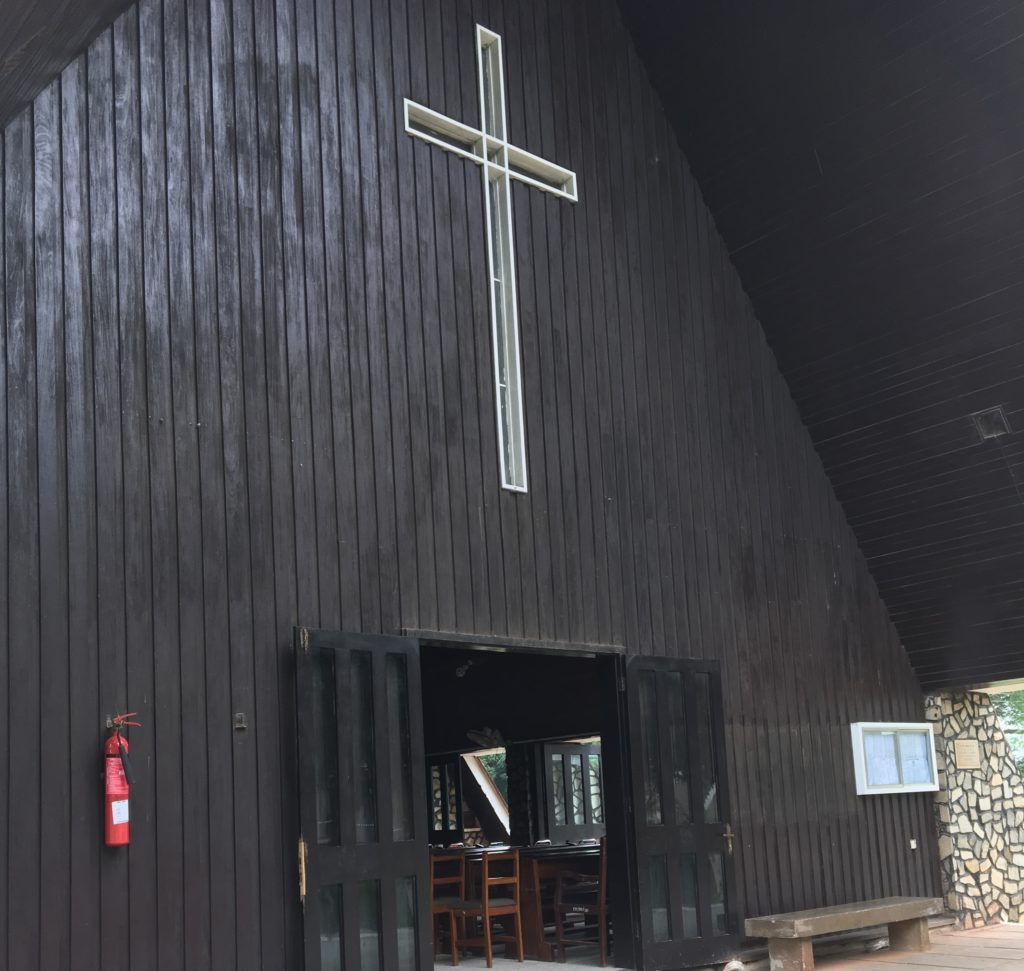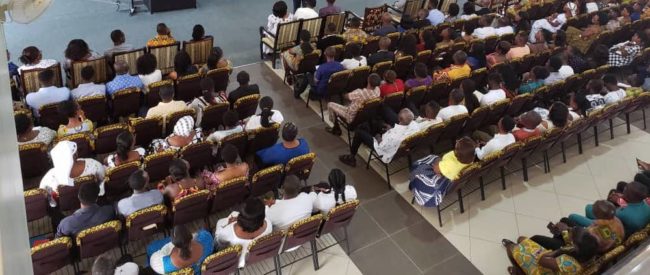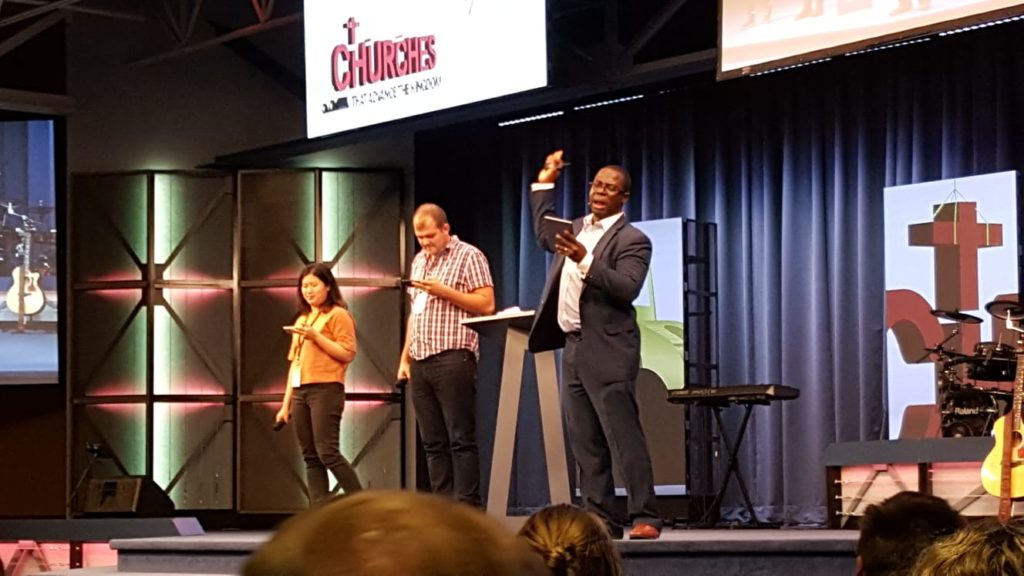Church in a Century of COVIDic Captivity | Epistle 3
COVID-19 TESTS: WILL THE CHURCH PASS?
By Thomas R. Bosomtwe
The Coronavirus pandemic has changed everything; including ‘church.’ This is the third in a series of random thoughts about the Church at a time when COVID-19 threatens to hold us all to ransom. Guest writer T.R. Bosomtwe examines the suspension of church services in Ghana and matters arising: a theological reflection.
INTRODUCTION
On Sunday, 15th March, 2020, I listened to the president of Ghana outline the measures government has rolled out to curb the spread of the corona virus in Ghana. As part of the measures the president has directed that all church services be suspended for the next four weeks.
The directive, as would be expected, has been received with mixed reactions. On one hand, there are those who are of the view that it is discriminatory in the sense that if church services and other religious gatherings are being suspended, then activities at the night clubs, drinking bars, restaurants, supermarkets and lorry stations should all be suspended. In fact the Bishops’ Conference has raised questions about why they were not consulted on the matter and why night clubs and chop bars have been excluded.
On the other hand, there are others who have lauded the President for this directive. While they are not too happy that church services will not hold for the next four weeks, they believe that it is one of our surest ways of preventing any further spread of COVID-19. Many churches have issued memos to their congregants and adherents asking them to suspend all church activities until further notice.
While both sides have legitimate and very strong arguments to support their positions, I hold a neutral view on the suspension of church services. Among other things, I believe there is a lot more we have to do to curtail the spread of COVID-19. The bottom line is that individuals must seriously take personal responsibility for their own safety.
The suspension of church services however, is a test for the body of Christ. It is a test for the church as a corporate body, and it is a test for individual Christians This directive, occasioned by COVID-19, will reveal how robust or otherwise our set-ups are. The way we do church in this country will definitely not be the same during and after this pandemic. Indeed, COVID-19 is testing many of the things we believe and many of the things we have been doing over the years. A few are discussed below.
1. TEST OF PRAXIS
First of all, the suspension of church services will test how we have been ‘doing’ church. The basic disciplines of the faith including personal and family devotion, personal prayer life, fellowship, commitment to holiness and evangelism we have cultivated are being tested. For the next 4 weeks, members will not be coming to church to listen to sermons. The question is will our church members survive? It depends on whether we have been ‘discipling’ our members, equipping them to live and serve Christ or we have reduced them to pastor-dependent Christians who depend on the pastor for almost everything. In the next four weeks the former will survive but the latter will tottle.
2. TEST OF LOYALTY
Secondly, the suspension will test the loyalty of church members. There are many Christians whose loyalty to Christ and to their local churches will be tested in the next four weeks. Some church members may see this suspension as a holiday and behave like school children who have been asked to go home because it rained. Others will really miss church! So, will you send your offering and tithe through ‘momo’ to church on Sunday? Would you want to know what your local church will do on Sunday and how you can support it?
3. TEST OF CITIZENSHIP
Thirdly, the suspension will test our practice of Christianity in relation to state authority. You do not need to be a prophet to predict that some ‘super spiritual’ churches will defy the directive of the President and hold their ‘regular’ church service on Sunday. Some are of the theological persuasion that it is an attack on their right to worship…and that…”they will obey God rather than man…” the real question is, how should the church relate to civil authority?
4. TEST OF SUBSTANCE
Fourthly, the suspension will make us know that people are more important than buildings. Many churches have invested huge sums of money into cathedrals, parishes, and auditoriums. Sometimes the very people who constitute the church are neglected, unattended to all because the church is building. Well, on Sunday, pastors will not have their regular members to preach to. What will become of the expensive chairs, supersonic gadgets and fittings? This is the time we need our members the most, but if we have not prioritized their needs and interests, then this time, they too will ‘show us.’
5. TEST OF TECH-READINESS
Last but not least, the suspension of church services for the next four weeks will test our preparedness for and how abreast we are with technology. I have heard with excitement some of the measures some churches are putting in place to reach their members on Sundays and all through the period when the suspension is in force; online streaming, facebook live, YouTube, radio broadcasts and the like. I also know some church leaders have no idea what these things are let alone what they are used for. It is time to embrace technology and use it to reach the masses for Christ.
CONCLUSION
Let me conclude by saying that God has a very interesting way of getting man’s attention. Sometimes “God allows the hurricanes of life to shake us into seeing that in a world of gigantic forces, we live by His permission, not by OUR good management.” Some things happen so that man will know that “there is a God in heaven who rules in the affairs of men.” By all means, let us observe the preventive protocols, but let us also pray for God’s intervention and while we are at it, let us learn the lessons that COVID-19 is bringing to all, especially the body of Christ.
________________
The author is a student of Theology and Associate Pastor with the Assemblies of God, Ghana (Holy Ghost Revival Centre, Accra). The initial version of this write-up was first published on his FaceBook wall on March 17, 2020.
Church in a Century of COVIDic Captivity | Epistle 2
DANCE DIFFERENT
By Kwamena Bello
Dear Church,
The directive of the State for a four-week cessation of church gatherings following confirmed cases of COVID-19 in Ghana is NO ATTACK on the Church; rather, it is an opportunity to extend the frontiers of our outreach and impact.
I know some of you are so peeved by the directive and you reckon this as an attack on the Church, because whilst the Church cannot have its usual gatherings, apparently nightclubs and bars are allowed to operate.
I can agree that the exception seems irrational because people do not go to nightclubs to listen to a motivational talks, but mostly, to drink, bump, wind, and grind; a classic example, that is, of close contact engagement — very fertile ground for many to pick up the virus.
That said, and be that as it may, Pastors must now kindly and urgently, release the ministry to the saints; matter of fact, your assignment as a minister is to train the saints for works of ministry (Ephesians 4:12).
Let’s use this season to focus on developing care-cell (home-cell/house fellowship/home groups) system so that the saints can serve each other more intimately with God’s gifts of grace he has given each member of the body of Christ, and by extension, their communities.
In the meantime, let’s follow the various protocols as given by the State’s health officials, which protocols – with the exception of a few – must continue even when the outbreak is finally over.
Additionally, and equally importantly, let’s invest in technology and make good use of New Media. The drumbeat changed a long time ago, hence, we cannot afford to dance the same way as we’ve done. No, not anymore.
It’s time to wake up and seize the day.
________________
The author is a Missionary Lead with the Assemblies of God, Ghana (Elevation Assembly, Accra). The first version of this write-up was made on his FaceBook wall on March 17, 2020.




